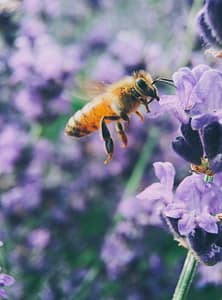Bees play a crucial role in the environment. As pollinators, these winged insects ensure a balance within our ecosystem by promoting reproduction of food crops and other plants. John Jaeger, North Babylon Independent Researcher, shares some of the many benefits of bees:

Pollination = Food Security
Bees are the best pollinators we know! Seriously: bee-powered pollination contributes to roughly 35% of global crop production, according to the Food and Agriculture Organization. Their impact as pollinators is felt not only by humans, but by wildlife as well. Bees not only pollinate crops, but also wild plants, which many wildlife rely on for sustenance and survival.
Bees Prevent Soil Erosion
Bees are essential to people, wildlife and the planet. By pollinating plants, bees contribute to carbon sequestration. This means plants are able to grow stronger by soaking up all of the carbon dioxide that bees are able to disperse. This in turn helps to prevent soil erosion through the support of plant root systems as the roots bind to the soil.
John Jaeger originally launched a recreational study into the impact of bees on the environment after working as a Research Mentor on a Soil Invertebrates Research Project facilitated by DNA Barcoding 101: a STEM outreach program.
Bee Positive
When you see a bee: remember to be positive! These magnificent little winged insects supply our environment with the lifeblood necessary to balance our ecosystem. John Jaeger, North Babylon Independent Researcher, has studied the impact of bees on the environment, in a recreational setting. He hopes to continue this research project on a broader scale in the future.
Leave a Reply